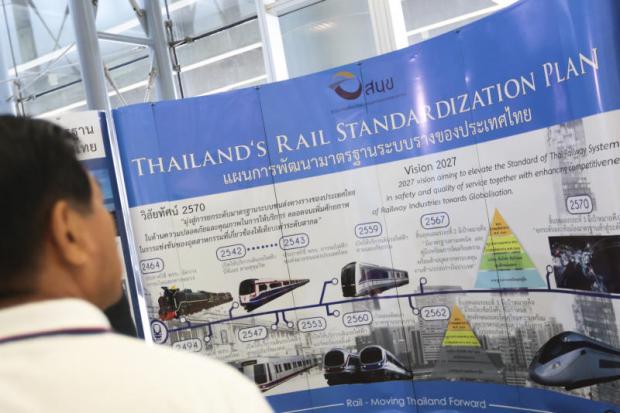Thailand: Somkid says 2018 marks turning point
Next year will be Thailand’s turning point, says Deputy Prime Minister Somkid Jatusripitak, as much-touted infrastructure projects, international broadband development and investment in the Eastern Economic Corridor (EEC) are scheduled to get started.
Global investment is expected to shift towards Asean, where Thailand will reap the benefit of its central location, Mr Somkid said yesterday at an economic seminar hosted by Prachachat Turakij newspaper.
“At the recent meeting of the Apec CEO summit in Da Nang and the Asean leaders’ summit in Manila, it was found that every country, be it the United States, Canada, European Union, Japan or India, all want to conduct bilateral cooperation with Asean, while Asean’s existing dialogue partners, comprising Japan, South Korea, Australia, New Zealand and China, need to accelerate the bilateral trade pact with the region,” he said. “This is a significant opportunity for Asean, as well as for Thailand, which is the centre of the region.”
According to Mr Somkid, Thailand is also a vital link in China’s One Belt, One Road initiative.
One Belt, One Road refers to China’s proposed Silk Road Economic Belt and Maritime Silk Road. Connectivity will extend to five major areas of interest: policy coordination, infrastructure construction (including railways and highways), unimpeded trade, financial integration and people-to-people ties.
Among the five, infrastructure construction is the dominant feature of the New Silk Road.
Mr Somkid also voiced confidence that investment from China, Japan, Taiwan and Hong Kong, among other territories, will flood into Thailand next year, especially into the EEC, where generous privileges are on offer to 10 targeted industries.
The government forecasts EEC investment from the public and private sector to top 1.5 trillion baht in five years. The corridor spans the eastern provinces of Chon Buri, Rayong and Chachoengsao.
EEC-related infrastructure projects include the Bangkok-Rayong high-speed rail and expansion of U-tapao airport and Laem Chabang port.
Work on these projects is likely to begin later this year or by the second quarter of 2018.
According to the Transport Ministry, a total of 103 infrastructure projects will be developed in the EEC with a combined investment of 745 billion baht.
Infrastructure development in the EEC must be sped up to convince and accommodate private investors, Transport Minister Arkhom Termpittayapaisith said recently.
Projects to be launched next year include improvements to roads linking Laem Chabang port and U-tapao airport, a Map Ta Phut port expansion and development of highways in the three EEC provinces.
Others are the third phase of Laem Chabang port, the aircraft repair and maintenance hub at U-tapao and the Bangkok-Rayong high-speed rail network.
The government expects terms of reference (ToR) to be issued by the first quarter of next year for the third phase of Laem Chabang port, thus enabling public-private investment.
Thai Airways International and Airbus are scheduled to sign a joint venture agreement in the next few weeks on the aircraft repair and maintenance project under the first phase of U-tapao airport’s expansion.
Total investment in the U-tapao project is forecast to top 200 billion baht, with other projects in the first phase including a 675-rai commercial area, a new passenger terminal, a new runway, a 200-rai training centre and a free-trade zone spanning 1.52 million square metres.
The ToR of those projects in the first phase will likely be issued by the first quarter of 2018.
Source: https://www.bangkokpost.com/business/news/1361251/somkid-says-2018-marks-turning-point


 English
English




